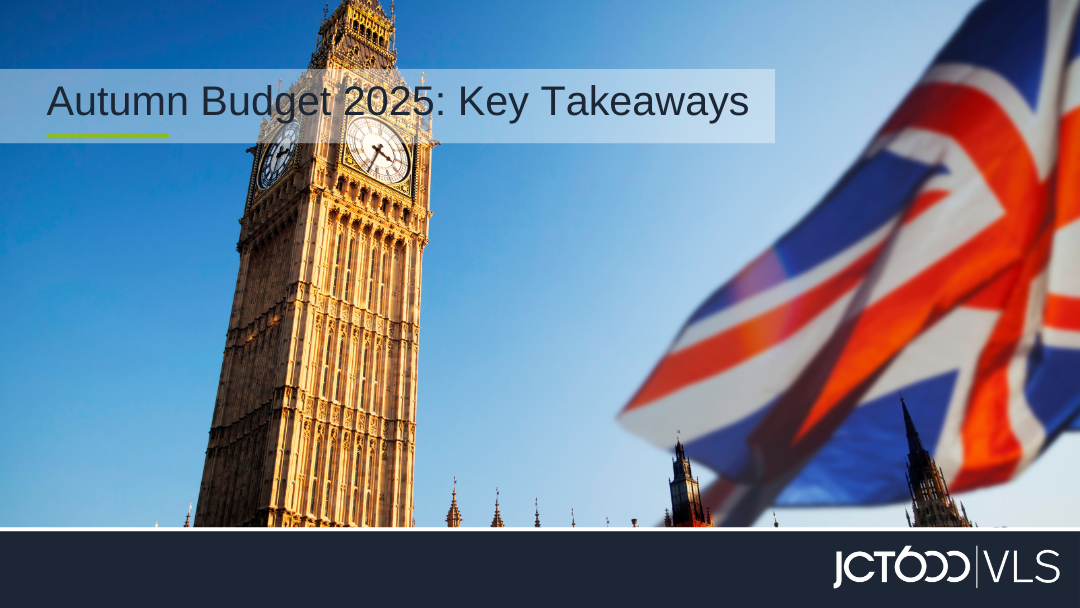Wednesday’s Autumn Budget brought several noteworthy updates for the fleet sector, but the overarching message is one of continuity, especially for the transition to electric vehicles (EVs). Crucially, nothing announced changes the strategic direction, reinforcing the path we are already on.
Here’s our breakdown of the key takeaways and what they mean for your fleet.
The Power of Salary Sacrifice for Cars Still Stands
Great news for your employees! While the government adjusted salary sacrifice rules for pensions, salary sacrifice for cars was untouched. This means that Salary Sacrifice continues to be one of the most cost-effective, highly valued and hassle-free methods for helping your employees access new, low-emission vehicles.
Driving the Electric Transition Forward: Positive Signals
Beyond specific tax measures, the wider government announcements signal a long-term commitment to a robust EV ecosystem:
- Charging Infrastructure Boost: A £100m investment for EV charging infrastructure, specifically targeting support for more home and workplace installations, which are two of the most convenient charging options.
- Local Authority Capability: Another £100m is dedicated to boosting specialist local authority teams, accelerating the rollout of public charge points across the country.
- Addressing ‘Kerbside’ Charging: A new consultation on cross-pavement charging promises to make accessing EV charging quicker and cheaper for the many households without driveways.
- Reviewing Charging Costs: The government will review public charging costs to help bring prices down for drivers.
- Roads Investment: There is also a massive £2bn per year for road repairs from 2029–30, effectively doubling current funding. Better roads mean better driving experiences for your drivers.
Key Taxation and Operating Cost Changes
| Electric Car Grant Extension | Funding increased by £1.3 billion and extended to 2029–30, maintaining the current two-tier support (£1,500 and £3,750). |
| New Electric Vehicle Excise Duty (eVED) and eVED Rates: | From April 2028, a new mileage-based tax will be introduced to replace falling fuel duty revenues. EVs: 3p per mile; PHEVs: 1.5p per mile (Charged in addition to standard VED). |
| Expensive Car Supplement (ECS) | The threshold for zero-emission vehicles will rise from £40,000 to £50,000 from April 2026. (Applies to EVs registered from April 2025 onwards). |
| VED Rates | VED for cars, vans, and motorcycles will increase annually in line with the Retail Price Index (RPI) from April 2026. |
| PHEV Benefit-in-Kind (BiK) Easement | A temporary measure will apply from January 2025 to April 2028 to prevent sharp tax increases linked to the new emissions testing standard (eBIS). The CO2 emission figure for those PHEVs will be deemed to be a nominal figure of 1g/km for the purposes of the BIK charge. |
Fuel Duty Impact
The freeze on petrol and diesel duty is extended until September 2026 but will then be phased out with small increases in late 2026 and early 2027, followed by annual RPI increases from April 2027.
- Impact: This sustained increase will notably impact operating costs for high-mileage Internal Combustion Engine (ICE) fleets. While paid at the pump and not impacting your VLS transactions, it is a further business cost that will be reflected in ongoing whole life cost (WLC) calculations and analysis. This further strengthens the financial case for switching to electric.
Employee Car Ownership Schemes (ECOS)
The planned changes to bring ECOS under Benefit-in-Kind rules have been delayed until April 2030, with transitional arrangements until April 2031. For the small number of companies we work with on these schemes, we are already in dialogue.
At JCT600 VLS, our teams are implementing the necessary changes in our systems and communicating with impacted customers and will continue to monitor ongoing developments.
Our View: Focus on the Long-Term
The Autumn Budget confirms that the long-term direction of travel for the fleet industry is firmly towards electrification. The incentives remain strong, the infrastructure support is growing, and the costs of running an electric vehicle on your fleet, while increasing over time, the cost of PHEVs and ICE continue to increase at a greater rate.
We continue to work alongside our customers with their own electrification journeys, supporting our customers’ strategies and change projects, reviewing company car and van policies, and in launching salary sacrifice schemes.
Please contact the VLS team on 01133911791/contact.vls@jct600.co.uk, or your account manager for further information.

